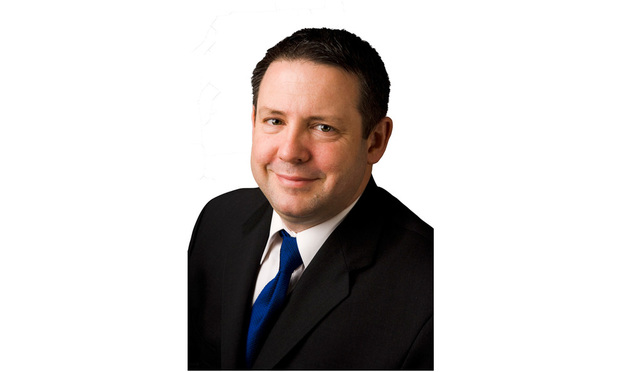Del. Supreme Court Upholds $770M TransPerfect Sale to Co-Founder
The Delaware Supreme Court on Thursday upheld the $770 million sale of TransPerfect Global Inc. to co-founder Philip R. Shawe, bringing to an end more than three years of fierce litigation with his erstwhile partner Elizabeth Elting over control of the successful translation-service company.
May 03, 2018 at 05:30 PM
4 minute read
 Phil Shawe.
Phil Shawe. The Delaware Supreme Court on Thursday upheld the $770 million sale of TransPerfect Global Inc. to co-founder Philip R. Shawe, bringing to an end more than three years of fierce litigation with his erstwhile partner Elizabeth Elting over control of the successful translation-service company.
In a two-page order, Justice Collins J. Seitz Jr. said that Delaware Court of Chancery Chancellor Andre G. Bouchard was correct in approving the deal, which hands Shawe full control of the firm and finally breaks the corporate deadlock that led Elting to petition for TransPerfect's breakup in 2014.
Bouchard in February accepted a court-appointed custodian's recommendation that Shawe acquire all of Elting's shares in a company the pair launched from a college dorm room in 1992.
The case had made Bouchard and custodian Robert B. Pincus the targets of attacks from both sides in a case marked by both its unusual nature and the vitriol on display from both Shawe and Elting throughout the proceedings. In the high court's order, Seitz commended both men for their poise in handling the matter.
“The chancellor rose above the unjustified personal attacks on his integrity, and patiently and thoroughly addressed each issue raised in this bitter dispute, including Elizabeth Elting's objections to approval of the sale agreement. The trustee also ably performed his duties under the same conditions,” he said on behalf of the state's five justices.
According to Bouchard's Feb. 15 opinion, Elting is expected to receive $287 million in net proceeds after taxes in the deal, struck last November between Shawe and Pincus, who was responsible for orchestrating the sale. The agreement stipulates that PRS Capital, a New York limited liability company owned by Shawe, will purchase Elting's 50 percent stake for $385 million.
Elting appealed the ruling, arguing that Pincus, a partner with Skadden, Arps, Slate, Meagher & Flom, had abused his discretion and yielded to Shawe's unrelenting public assault on the sale process and personal threats of litigation against the custodian. Instead, she asked that Pincus be forced back to the negotiating table to engage directly with H.I.G. Middle Market, a third-party bidder and TransPerfect's leading competitor.
Her attorney was not immediately available to comment Thursday afternoon.
Shawe, meanwhile, said he felt “pleased and vindicated” with the ruling, which would allow TransPerfect to continue operating successfully into the foreseeable future.
“At this time, I simply want to thank the TransPerfect staff; it is our team who deserves profuse praise for driving the company's unparalleled performance,” he said in a statement. “Everyone who pulled together to make the dream of TransPerfect into a reality over the past 25 years should know this: We will continue to grow, to innovate, and to lead the market.”
An attorney for Pincus did not respond to a call Thursday seeking comment on the case.
Once engaged to be married, Elting and Shawe's personal relationship deteriorated to the point that TransPerfect's governance structure had been thrown into a hopeless state of gridlock. In 2014, she petitioned the Chancery Court to take the rare step of appointing a custodian to break up the firm.
Bouchard granted the request in August 2015, over Shawe's objection, and later accepted Pincus' recommendation that the company be sold in a modified auction.
Bad blood between the firm's inevitably spilled over into the litigation, where both the Supreme Court and the Court of Chancery have detailed a myriad ugly run-ins between the two. Bouchard sanctioned Shawe $7.1 million for his “unusually deplorable” behavior, which included lying under oath and trying to delete evidence.
Shawe had been deeply critical of both decisions, at times challenging Bouchard's experience and integrity.
“Chancellor Bouchard rendered his bias decision, not based in law, equity or even remotely based on the evidence presented at trial, but instead based his highly charged emotional decision on his personal feelings and rash temperament,” he said in response to the rulings, both of which were upheld by the state Supreme Court last year.
Still, Shawe organized his forces to outbid potential buyers earlier this year in a court-administered auction. In February, Bouchard agreed that the deal had met the dual goal of maximizing the company's value and preserving it as a going concern.
The Supreme Court's ruling followed Elting's expedited appeal. A ruling had originally been slated for April 18.
The case was captioned Elting v. Shawe.
This content has been archived. It is available through our partners, LexisNexis® and Bloomberg Law.
To view this content, please continue to their sites.
Not a Lexis Subscriber?
Subscribe Now
Not a Bloomberg Law Subscriber?
Subscribe Now
NOT FOR REPRINT
© 2025 ALM Global, LLC, All Rights Reserved. Request academic re-use from www.copyright.com. All other uses, submit a request to [email protected]. For more information visit Asset & Logo Licensing.
You Might Like
View All


3rd Circ Orders SEC to Explain ‘How and When the Federal Securities Laws Apply to Digital Assets’
5 minute read
Womble Bond Dickinson's Wilmington Office Sees New Leadership as Merger Is Completed
4 minute readTrending Stories
- 1Decision of the Day: Judge Dismisses Defamation Suit by New York Philharmonic Oboist Accused of Sexual Misconduct
- 2California Court Denies Apple's Motion to Strike Allegations in Gender Bias Class Action
- 3US DOJ Threatens to Prosecute Local Officials Who Don't Aid Immigration Enforcement
- 4Kirkland Is Entering a New Market. Will Its Rates Get a Warm Welcome?
- 5African Law Firm Investigated Over ‘AI-Generated’ Case References
Who Got The Work
J. Brugh Lower of Gibbons has entered an appearance for industrial equipment supplier Devco Corporation in a pending trademark infringement lawsuit. The suit, accusing the defendant of selling knock-off Graco products, was filed Dec. 18 in New Jersey District Court by Rivkin Radler on behalf of Graco Inc. and Graco Minnesota. The case, assigned to U.S. District Judge Zahid N. Quraishi, is 3:24-cv-11294, Graco Inc. et al v. Devco Corporation.
Who Got The Work
Rebecca Maller-Stein and Kent A. Yalowitz of Arnold & Porter Kaye Scholer have entered their appearances for Hanaco Venture Capital and its executives, Lior Prosor and David Frankel, in a pending securities lawsuit. The action, filed on Dec. 24 in New York Southern District Court by Zell, Aron & Co. on behalf of Goldeneye Advisors, accuses the defendants of negligently and fraudulently managing the plaintiff's $1 million investment. The case, assigned to U.S. District Judge Vernon S. Broderick, is 1:24-cv-09918, Goldeneye Advisors, LLC v. Hanaco Venture Capital, Ltd. et al.
Who Got The Work
Attorneys from A&O Shearman has stepped in as defense counsel for Toronto-Dominion Bank and other defendants in a pending securities class action. The suit, filed Dec. 11 in New York Southern District Court by Bleichmar Fonti & Auld, accuses the defendants of concealing the bank's 'pervasive' deficiencies in regards to its compliance with the Bank Secrecy Act and the quality of its anti-money laundering controls. The case, assigned to U.S. District Judge Arun Subramanian, is 1:24-cv-09445, Gonzalez v. The Toronto-Dominion Bank et al.
Who Got The Work
Crown Castle International, a Pennsylvania company providing shared communications infrastructure, has turned to Luke D. Wolf of Gordon Rees Scully Mansukhani to fend off a pending breach-of-contract lawsuit. The court action, filed Nov. 25 in Michigan Eastern District Court by Hooper Hathaway PC on behalf of The Town Residences LLC, accuses Crown Castle of failing to transfer approximately $30,000 in utility payments from T-Mobile in breach of a roof-top lease and assignment agreement. The case, assigned to U.S. District Judge Susan K. Declercq, is 2:24-cv-13131, The Town Residences LLC v. T-Mobile US, Inc. et al.
Who Got The Work
Wilfred P. Coronato and Daniel M. Schwartz of McCarter & English have stepped in as defense counsel to Electrolux Home Products Inc. in a pending product liability lawsuit. The court action, filed Nov. 26 in New York Eastern District Court by Poulos Lopiccolo PC and Nagel Rice LLP on behalf of David Stern, alleges that the defendant's refrigerators’ drawers and shelving repeatedly break and fall apart within months after purchase. The case, assigned to U.S. District Judge Joan M. Azrack, is 2:24-cv-08204, Stern v. Electrolux Home Products, Inc.
Featured Firms
Law Offices of Gary Martin Hays & Associates, P.C.
(470) 294-1674
Law Offices of Mark E. Salomone
(857) 444-6468
Smith & Hassler
(713) 739-1250






